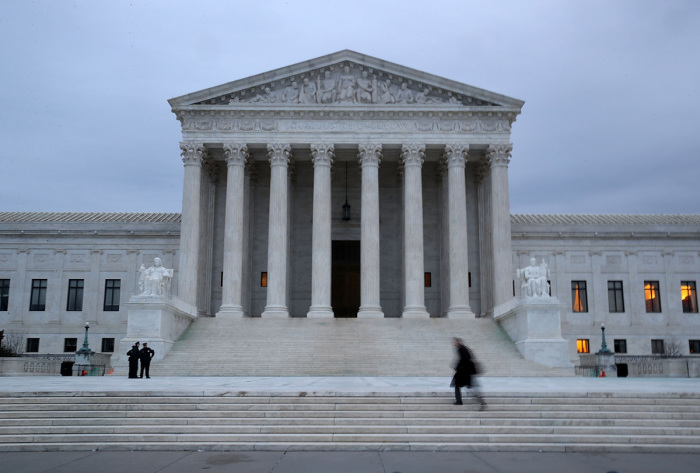Supreme Court allows removal of trans-identified child from Catholic parents' home to stand

The U.S. Supreme Court has declined to take up a case involving Catholic parents trapped in a custody battle after refusing to recognize their trans-identified son's self-declared female identity.
In a list of orders published Monday, the Supreme Court refused to take up the case of M.C., et vir v. Indiana Department of Child Services. The court didn't provide a reason for rejecting the petition for a writ of certiorari filed by Indiana Catholic parents Mary and Jeremy Cox.
The Coxes appealed to the nation's high court in December after years of litigation that began shortly after their teenage son informed the devoutly Catholic couple that he identified as a girl and wished to be called by female pronouns.
Because of the couple's religious beliefs about gender and sexuality, they could not in good conscience comply with their son's request. The Indiana Department of Child Services initiated an investigation into the Cox household over the parents’ refusal to use their son's self-declared female name and pronouns.
"No other loving parents should have to endure what we did," Cox said in a statement after the Supreme Court's announcement. "The pain of having our son taken from our home and kept from our care because of our beliefs will stay with us forever. We can't change the past, but we will continue to fight for a future where parents of faith can raise their children without fear of state officials knocking on their doors and taking their children."
Joshua Hershberger, the general counsel for the Indiana Family Institute, which helped support the couple along with the religious freedom advocacy group Becket, said in a statement that the appeal "accomplish[ed] the goal of placing this fact pattern in front of SCOTUS as a real and growing threat to parental rights, freedom of religion, and free speech."
"These constitutional principles represent a cause — not just a case — and we will continue to advocate for that cause in law and culture," Hershberger said.
The petition asked the high court to address the question, asking, "When can the state muzzle parental speech and remove a child from the home of admittedly fit parents?" It stated that if left unresolved, "evidence regarding siblings' removal from the home is admissible in a petition to terminate parental rights as to a different child."
In 2021, two years after their son started identifying as a girl, the Indiana Department of Child Services launched an investigation into the parents that culminated with his removal from their custody and placement into a home that affirmed his self-declared identity.
In June of that year, a trial court ruled that the boy should be removed from the Coxes' custody because of their supposed "inability, refusal or neglect to provide shelter, care, and/or supervision at the present time."
After the state dismissed the allegations of "neglect to provide shelter, care, and/or supervision," lower courts upheld the state's decision to remove the Coxes' child from their custody while enabling the couple to visit their son periodically as long as they agreed to refrain from discussing his gender identity. When the Indiana Supreme Court declined to take their case, the couple sought relief from the U.S. Supreme Court.
The petition suggested that the actions of Indiana and the state courts run afoul of "this Court's precedents on parental rights, free speech, and religious exercise" by increasing "governments' power to remove children from fit parents, [limiting] Free Exercise defenses to removal of children, and [putting] speech that occurs in the home beyond the reach of the First Amendment."
In a previous interview with The Christian Post, Becket attorney Laura Slavis warned that a failure to intervene by the U.S. Supreme Court would set a "dangerous precedent" that could lead to other states removing children from their parents based on their religious beliefs.
"There are two major issues in this case: One is about the fact that the child is taken away just because of the parents' religious beliefs on sexuality. And the other is what a parent can speak to their child about in the confines of their own home," she said.
"We think that it's important that this case be addressed and a very clear message be sent that this is unconstitutional so that other states can't rely on the precedent," Slavis added.
She stressed that a Supreme Court ruling in their favor would mean that "the parents would no longer have any legal consequences flowing from this custody proceeding that happened against them."
Ryan Foley is a reporter for The Christian Post. He can be reached at: ryan.foley@christianpost.com




























